When my son was diagnosed with autism at the age of 3, my family began a journey that opened our eyes to a world that is, far too often, not built for everyone.
As a parent, I watched him grow into a young man full of potential—curious, analytical, with a memory that could rival a database. But when it came time to find work, it felt like doors were shut before he even reached them.
He faced a wall of silent rejections like many other Neurodivergent young people, where interviews designed to trip them up, and assumptions that masks their ability.
Sadly, his experience, like many others isn’t unique. It’s echoed by thousands of young people across Yorkshire with neurodivergent conditions like autism, ADHD, dyslexia, and dyspraxia—bright individuals who want to work but are systematically excluded from the start.
The Statistics Paint a Stark Picture
According to the Government’s own review in 2023, only 29% of working-age autistic adults in the UK are in employment. That figure drops even lower when it comes to full-time work or career progression.
In North Yorkshire where I live, the situation is even more urgent. Local data suggests just 21.7% of autistic adults are in work, and many face underemployment—taking roles far below their capabilities or in unsupportive environments that can lead to burnout, anxiety, or withdrawal.
Yet employers across Yorkshire are reporting persistent skills shortages.
Therefore, the question is clear: why are we ignoring an entire community of untapped talent?
The Education & Welfare Reforms at Risk
Recent Government proposals may threaten to worsen this situation:
- Welfare Cuts: The government aims to save over £5 billion through tighter PIP and UC health eligibility rules—plans that charities warn will hit young people with disabilities, particularly those with fluctuating needs, hard.
- SEND Funding Reforms: With EHCPs now supporting over 600,000 children, Government reforms may limit or replace these plans with mainstream support units. Critics fear removing EHCP guarantees could undermine vital educational support.
These reforms could leave young neurodivergent people with fewer resources, less formal support, and increased barriers to employment.
In addition to my role as a councillor and campaigner, I’m proud to serve as a Governor at Brooklands Community Special School in Skipton, which provides an exceptional education for children with a range of complex needs.
Their Post-16 provision is growing rapidly, offering tailored learning, life skills, and supported pathways to independence. But one of the biggest challenges remains: a shortage of local employers offering real work experience opportunities.
Despite the school’s incredible efforts—and the motivation of the students—many doors remain closed.
These young people don’t need charity; they need chances. A few hours a week in a supportive local business could mean the difference between long-term isolation and lasting employment.
Aegis and the Fight for Workplace Inclusion
Aegis is leading a national campaign focused on improving employment opportunities for neurodivergent individuals—particularly young people starting their careers. Through our Neurodiversity Charter, the campaign sets out practical, achievable actions to create real change, already being supported by some local employers like Skipton Building Society.
A Call to Employers
As someone working across these roles, I’ve seen the barriers—and the solutions—up close. That’s why I’m calling on employers to step up:
🔹 Offer supported internships and taster placements for Post-16 learners.
🔹 Commit to inclusive hiring and accessible workplaces
🔹 Partner with local schools, job coaches and unions to make the transition from education to employment meaningful and sustainable
We’ve made progress, but we need more. Let’s move from awareness to action. If we create spaces where every brain is valued, we won’t just change lives—we’ll build stronger, more inclusive communities and workplaces for everyone.
📩 Employers interested in signing the Charter or offering opportunities can contact:
📧 member@aegistheunion.co.uk


